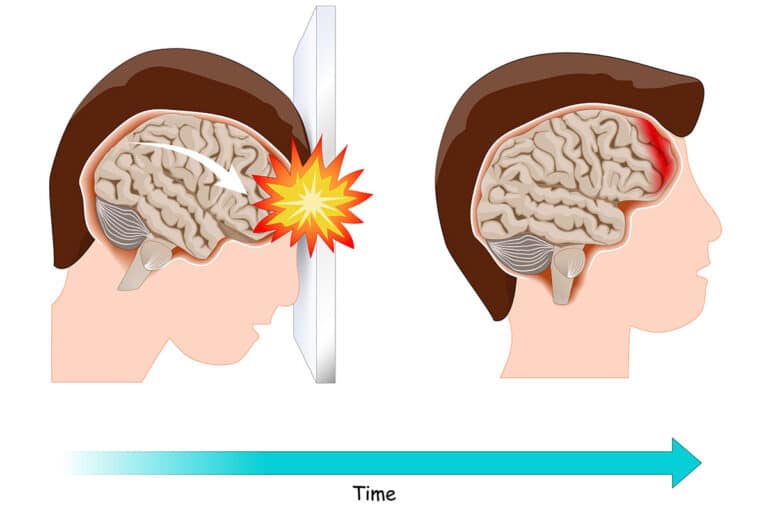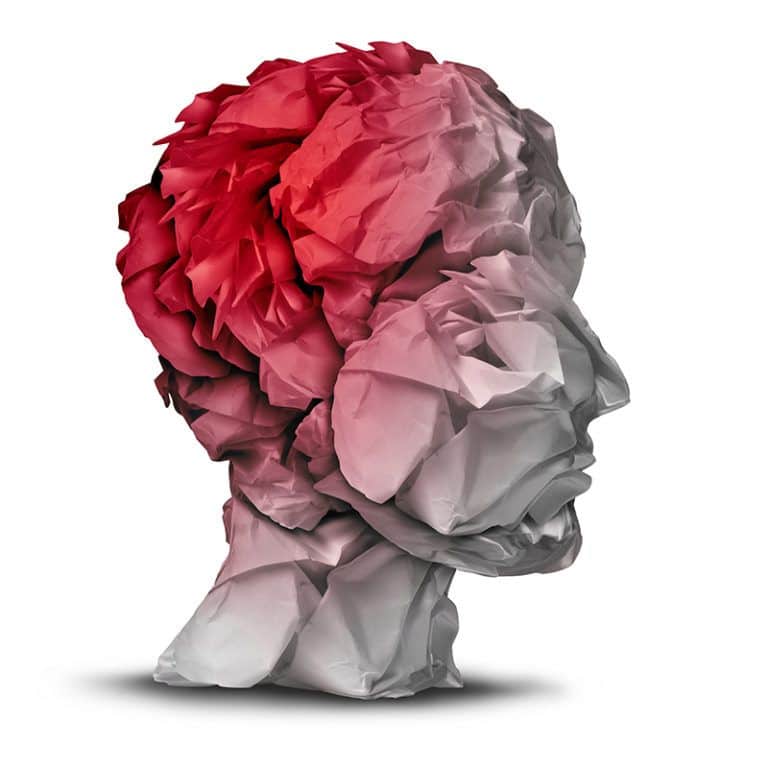Head injuries are quite common in personal injury cases. In fact, according to the CDC, most traumatic brain injuries (TBI) occur either from slip-and-fall accidents (49.1 percent) or vehicle collisions (24.5 percent). That’s nearly three-fourths of all TBI cases!
We all know that a serious blow to the head can lead to permanent brain damage and dementia—but is it possible even for minor TBIs to cause dementia down the road?
The answer, according to science, is yes. March is Brain Injury Awareness Month, so in view of that fact, let’s take a closer look at this issue.
What the Studies Show
According to an analysis conducted of 21 different studies, patients who suffered even a mild TBI (concussion, for example) were 1.95 times more likely to develop dementia compared to those who suffered no head injuries. In other words, the risk of dementia effectively doubles after a head trauma, even one that is supposedly mild. One possible reason for this trend is that although the brain may recover normal function after a mild injury, the damaged tissues never fully heal. As we age, this damage can begin to have a negative impact on brain function. The analysis mentioned above cites “subtle, persistent changes” in the brain for those who gradually develop dementia after a TBI.
Increased Risk Factors
Not everyone will develop complications in the brain following a mild TBI, but there are other factors that may increase the risk. Two of the most prevalent are:
- Age. Traumatic brain injuries (even mild ones) are more likely to trigger dementia in older accident victims than in younger ones.
- Repeated injuries. Every successive blow to the head increases the risk for eventual dementia or Alzheimer’s. (Players of contact sports can be quite susceptible in this way.)
Accounting for Mild TBI in Personal Injury Cases
If you sustain a blow to the head in an injury accident due to someone’s negligence, don’t assume your injuries are mild or will have no consequences later on. Even a mild TBI should be taken into account in any personal injury claim–not just in treating the immediate injury, but also in anticipating possible future complications such as the need for future medical care, lost capacity for income, etc. These factors should be considered when determining a fair settlement because even mild TBIs may affect your quality of life years down the road.
If you’ve been injured in an accident, especially one involving even minor head trauma, our attorneys know how to calculate a fair settlement based on the risk and fight to ensure you get the full settlement to which you’re entitled. Call us today for a free consultation.







